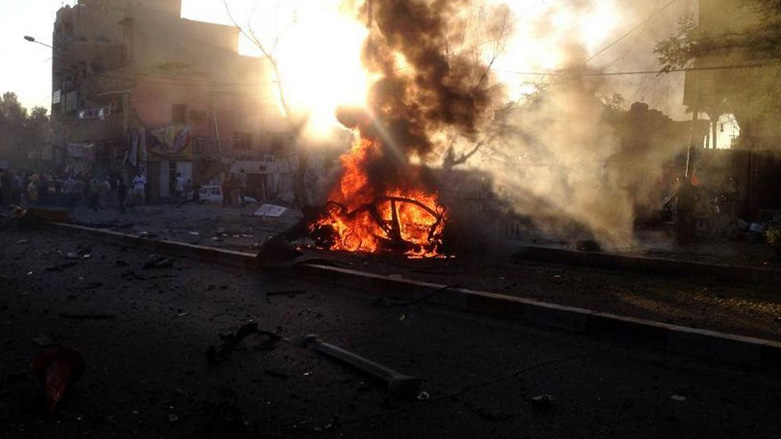Officers killed, civilians injured in Kirkuk bombing attacks
Separate attacks in Kirkuk Province on Sunday left two police officers dead and four other people wounded.

ERBIL (Kurdistan 24) – Separate attacks in Kirkuk Province on Sunday left two police officers dead and four other people wounded when two Improvised Explosive Devices (IED), placed on roadsides by unidentified militants, detonated as they passed the road.
“A homemade bomb exploded when a car with four passengers drove over it near the police station in the Dibs district northwest of Kirkuk,” a security source, asking to remain anonymous, told Kurdistan 24, adding that the passengers were wounded.
In a similar incident, two police officers died after another explosive device detonated under the patrol vehicle they were driving in the Nassif village in al-Multaqa sub-district, southwest of Kirkuk.
The source noted that security forces began a massive sweep of the area in search of the perpetrators.
Although no one has claimed responsibility for the incidents, Iraqi authorities point fingers to Islamic State (IS) sleeper cells which often carry out small-scale attacks, especially in the Kirkuk and Diyala provinces.
Those two provinces rank second and third for May civilian casualties (excluding Iraqi security forces) after Baghdad, a recent statement by the United Nations Assistance Mission for Iraq (UNAMI) reveals.
According to UNAMI, Diyala was the second hardest hit area with nine killed and 35 more injured followed by Kirkuk with nine dead and 15 wounded.
In a statement on Friday, the Iraqi Ministry of Defense said its intelligence and military detachments within the Nineveh Operations Command in a controlled-detonation, destroyed 100 IEDs planted some 750 meters from the predominantly-Christian town of Bashiqa.
Iraqi Prime Minister Haider al-Abadi announced victory against IS last December after three years of fierce fighting. The extremist organization, however, maintains an insurgency through ambushes, bombings, and kidnappings across the country.
Editing by Karzan Sulaivany
